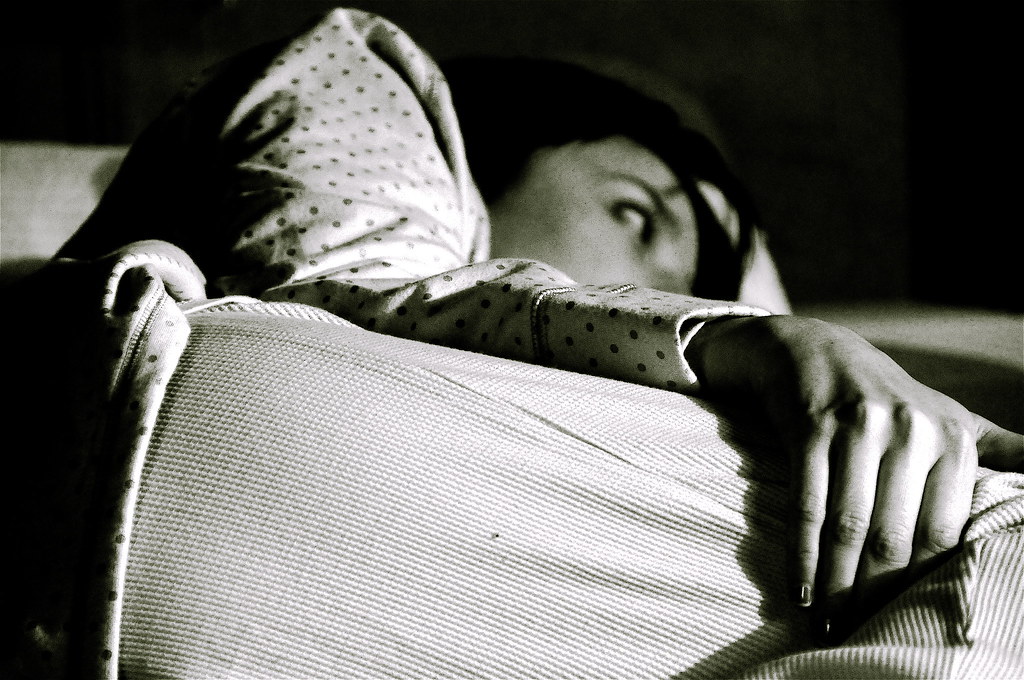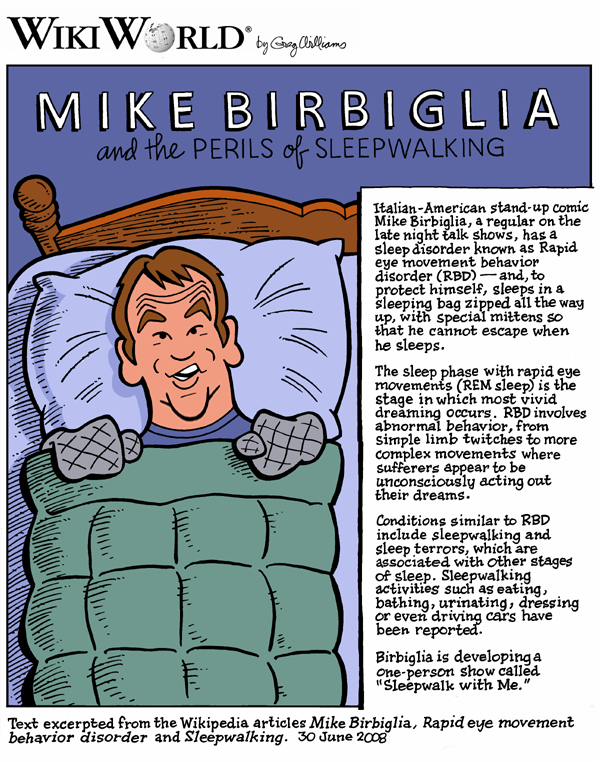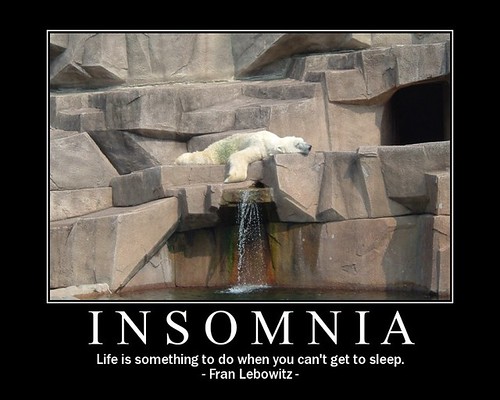
For many, the relentless struggle with sleepless nights is a profoundly isolating and debilitating experience. The Centers for Disease Control and Prevention (CDC) reports that a staggering one in three adults fails to get sufficient sleep each night, leading to a myriad of issues from increased risk of heart disease and stroke to unwanted weight gain, diabetes, and even mood disorders like depression and anxiety. When the exhaustion becomes overwhelming, and traditional sleep tips offer insufficient solace, the allure of a quick fix in the form of a sleep aid can be incredibly strong, promising a much-needed reprieve from the tossing and turning.
Indeed, for 8.5 million adults who reported using prescription sleep aids in the last month, these medications can, for a short period, offer a sense of control over an otherwise chaotic sleep cycle. They might seem like a viable last resort when everything else has been tried, offering targeted treatment for specific sleep disorders or issues like anxiety-triggered insomnia or shift work-related sleep disturbances. However, this immediate relief often comes with a hidden cost, a complex web of potential negatives that can, paradoxically, intensify the very distress they were meant to alleviate.
As a senior media editor committed to providing clear, authoritative, and empathetic health information, we must delve deeper into this critical topic. While the promise of a peaceful night is enticing, the experiences of many patients reveal that the side effects and long-term consequences of sleep aids can be profoundly unsettling, often leading them to exclaim that the remedy feels “worse than the insomnia” itself. This in-depth look aims to shed light on these serious struggles, empowering readers to make informed decisions about their sleep health.

1. **Developing Tolerance: The Escalating Trap**One of the most frequently encountered downsides to relying on sleep aids, whether over-the-counter or prescription, is the body’s tendency to develop tolerance. What begins as an effective solution to help you drift off to sleep can, over time, become less and less potent. This means that to achieve the same desired effect of falling asleep, you may find yourself needing a larger dose of the medication, or needing to take it more often than initially prescribed.
This escalating need creates a precarious cycle. The initial relief that a sleep aid provides can quickly fade, leading to a frustrating quest for stronger alternatives or increased dosages, often without consulting a healthcare professional. Such a pattern not only undermines the effectiveness of the medication but also significantly heightens the risk of experiencing more severe side effects and developing dependence, trapping individuals in a continuous search for elusive rest.
Experts widely acknowledge this phenomenon, often advising against prolonged use for precisely this reason. The body, in its remarkable adaptability, begins to adjust to the presence of the drug, rendering its initial dosage insufficient. This can be particularly true for over-the-counter sleep aids, which are emphatically not recommended for use longer than a week due to their rapid potential to lead to tolerance and dependency.
This development of tolerance underscores why sleep aids are primarily intended for short-term use, rather than a sustained solution for chronic sleeplessness. The continuous need for more potent intervention not only signals a deepening problem but can also obscure the underlying issues that are truly disrupting sleep, preventing a comprehensive and lasting resolution.
2. **The Threat of Rebound Insomnia**Imagine finally deciding to reduce or stop taking a sleep aid after a period of use, only to find your sleep problems returning with a vengeance, even worse than they were before you started the medication. This debilitating phenomenon is known as rebound insomnia, and it stands as a significant concern for individuals considering or currently using sleep aids.
Rebound insomnia is characterized by a severe intensification of sleeplessness upon discontinuing a sleep medication. This can manifest as an increased difficulty in falling asleep, more frequent awakenings during the night, or a dramatic reduction in overall sleep time. The very problem you sought to alleviate becomes magnified, creating a distressing and often demoralizing experience that can feel truly “worse than the insomnia” you initially faced.
Many medications, particularly those designed for short-term use, require a slow, supervised weaning process to mitigate the severity of withdrawal symptoms, including rebound insomnia. Attempting to abruptly cease a sleep aid without proper medical guidance can precipitate this challenging condition, making it incredibly difficult to reclaim natural sleep patterns and leaving individuals feeling trapped by their treatment.
This side effect serves as a powerful reminder of the body’s physiological adaptation to these drugs. While a sleep aid might temporarily override natural sleep mechanisms, suddenly removing that support can leave the system struggling to re-establish its own rhythm. The resulting battle against exacerbated insomnia can be deeply frustrating, underscoring the critical need for careful consideration and professional oversight when managing sleep aid usage.

3. **High Risk of Addiction and Dependence**The specter of addiction and dependence looms large over the discussion of sleep aids, transforming a temporary solution into a long-term struggle. Many commonly prescribed sleep medications, and even some over-the-counter options, carry a significant risk of physical and psychological dependence, turning the act of falling asleep into a reliance on a pill rather than a natural bodily process.
Benzodiazepines such as Ativan, Librium, Valium, and Xanax, while effective for anxiety and promoting drowsiness, are explicitly noted for their potential to be addictive and are generally not recommended for long-term treatment of sleep problems. Even newer medications like Ambien and Lunesta, though sometimes considered less habit-forming than benzodiazepines, still pose a chance of physical dependence over time, meaning the body learns to expect and rely on them to initiate sleep.
Concerningly, the Journal of the American Medical Association (JAMA) has revealed that a substantial majority—more than 68%—of patients prescribed sleeping pills end up taking them for longer periods or in larger quantities than advised. This trend highlights the ease with which individuals can inadvertently slide into dependence, often not recognizing they have formed an addiction until they attempt to stop the medication.
The warning signs of dependency are critical to recognize: experiencing withdrawal symptoms when the medication isn’t taken, repeatedly failing in attempts to stop, feeling anxiety when the drug isn’t available, seeking refills from multiple doctors, and frequent memory loss. These indicators underscore a profound challenge that can leave individuals feeling enslaved by the very substances intended to bring them rest, creating a dilemma that is undoubtedly “worse than the insomnia” itself.
Read more about: Your Guide to Safer Supplement Shopping: 10 Essential Steps to Spot Online Scams

4. **Navigating the Maze of General Side Effects**Beyond the grave concerns of tolerance and dependence, sleep aids, both prescription and over-the-counter, present a confusing and often unpleasant array of general side effects. These physiological responses can range from mildly bothersome to significantly disruptive, impacting daily functioning and overall well-being in ways that can make a person question if the temporary relief from sleeplessness is truly worth it.
Over-the-counter medications, often containing antihistamines like diphenhydramine found in products such as Benadryl, Nytol, Sominex, and Unisom, can induce dizziness, blurred vision, confusion, constipation, and dry mouth. While these may seem manageable, they can impede normal activities and lead to discomfort. For prescription sleep aids, these same risks often apply, with additional, potentially more unpleasant side effects including nausea, excessive daytime drowsiness, memory loss, headaches, and even suicidal thoughts in some severe cases.
It is imperative for individuals to conduct thorough research and, more importantly, engage in open and detailed discussions with a trusted healthcare professional before choosing any sleep aid. Understanding the specific side effect profile of each medication is crucial, as the impact can vary widely from person to person. What might be a minor inconvenience for one could be a debilitating experience for another, underscoring the personalized nature of these risks.
Ultimately, the cumulative burden of these side effects can overshadow any perceived benefits, transforming the journey to better sleep into a new source of distress. When a medication designed to help you rest instead leaves you feeling unwell, disoriented, or even more anxious about your health, it becomes clear why many patients express that these struggles are profoundly “worse than the insomnia” they sought to escape.
Read more about: 12 Crucial Car Realities Salespeople Wish You’d Understand to Enhance Your Purchase Journey

5. **The Perils of Complex Sleep Behaviors**Perhaps one of the most alarming and potentially dangerous side effects associated with certain sleep aids is the occurrence of complex sleep behaviors. These are incidents where individuals perform normal daily activities while not fully awake, often with no recollection of the events afterward. The consequences of such behaviors can range from embarrassing to severely life-threatening, causing immense distress for patients and their loved ones.
Examples of complex sleep behaviors cited by experts include sleepwalking, sleep-eating (where individuals consume food without awareness), and even incredibly perilous actions like using the stove or driving a car while asleep. Dr. Michelle Drerup, a sleep medicine expert, highlights the severity of these incidents, noting that such drowsy driving can be extremely dangerous. The U.S. Food and Drug Administration (FDA) has recognized the gravity of these risks, going so far as to require a black box warning—the agency’s strongest warning—on certain prescription sleep aids.
These FDA warnings specifically apply to the non-benzodiazepine receptor agonists class of prescription drugs, which includes commonly used medications like zolpidem (Ambien), eszopiclone (Lunesta), and zaleplon (Sonata). The requirement for these warnings followed a review of serious events, including tragic deaths due to car crashes and drowning, that occurred while individuals were experiencing complex sleep behaviors. The FDA also mandates a “contraindication,” formally stating that anyone who has experienced such a reaction, even once, should immediately cease taking the medication.
The unpredictable and potentially devastating nature of complex sleep behaviors undoubtedly positions them among the most severe drawbacks of sleep aid use. The risk of engaging in dangerous activities with no conscious control or memory afterwards is a chilling reality that can make the pursuit of sleep through medication feel infinitely “worse than the insomnia” itself, demanding extreme caution and prompt action if they occur.
Read more about: Fame’s Price: 8 Geniuses We’ve Elevated Who Caused Irreversible Harm.

6. **Dangerous Drug and Alcohol Interactions**A critical, and often life-threatening, risk associated with sleep aids is their potential to interact dangerously with other medications and alcohol. The central nervous system depressant effects of sleep aids can be profoundly amplified when combined with other substances that also depress the nervous system, leading to severe and potentially fatal outcomes. This intricate web of interactions necessitates extreme caution and thorough medical consultation.
Healthcare professionals and official warnings unequivocally state that sleep aids should never, under any circumstances, be mixed with alcohol. The combination of these two substances, both of which slow down brain activity, can lead to dangerously reduced breathing rates, severe sedation, and profound unconsciousness. In the most tragic scenarios, combining sleep aids with alcohol can cause respiratory arrest, resulting in death, a stark warning that cannot be overstated.
Beyond alcohol, specific medications such as antidepressants and antihistamines also pose significant interaction risks. Many over-the-counter sleep aids, as previously mentioned, contain antihistamines as their active ingredient, making it particularly dangerous to combine them with prescription sleep aids or other medications that might also have sedative properties. The cumulative effect of these depressants can overwhelm the body’s vital functions, increasing the risk of severe adverse events.
Moreover, the context highlights that individuals with existing health conditions like high blood pressure, cholesterol, or diabetes, who are already on medication, must be especially vigilant. Certain sleeping pills may negatively interfere with these crucial drugs, either stopping them from working properly or exacerbating their side effects. This complex interplay of substances underscores why a detailed discussion with a healthcare provider about all current medications is not just advisable, but absolutely essential, to avoid complications that can be truly “worse than the insomnia.”
Read more about: Decoding the ‘Worst’: 12 Critical Dangers Pharmacists Want You to Understand About Blind Supplement Stacking
7. **Impaired Memory and Performance: The ‘Morning Hangover’**While the primary goal of taking a sleep aid is to achieve restful sleep, a common and often debilitating consequence is the lingering “morning hangover” effect. This refers to the immediate impairments of memory and performance that can persist into the following day, leaving individuals feeling groggy, disoriented, and significantly less functional than they would expect after a night’s rest. This persistent impairment can make daily tasks challenging and even dangerous.
Dr. Daniel Kripke, a sleep researcher with over 30 years of experience, emphatically states in his book, *The Dark Side of Sleeping Pills*, that “All sleeping pills produce immediate impairments of memory and performance. Further, there is extensive evidence that sleeping pills on average impair performance and memory on the following day.” This expert opinion underscores that these cognitive and physical side effects are not incidental but are inherent to the very mechanism of how these drugs work to induce sleep.
Patients often report experiencing excessive daytime drowsiness, slowed thinking, and a general lack of alertness. This diminished cognitive capacity can directly impact professional productivity, academic performance, and even personal safety. Tasks requiring concentration, quick reflexes, or clear judgment, such as driving a car, can become hazardous. Dr. Michelle Drerup points out that for people who need to drive in the morning, being drowsy while behind the wheel is undeniably dangerous.
The irony is profound: a medication taken to improve daily functioning through better sleep can, in fact, hinder it through lingering side effects. This persistent mental fog, coupled with impaired memory, can make the subsequent day feel like an uphill battle, robbing individuals of the very clarity and energy they hoped to regain. When the solution to sleeplessness leads to a day of impaired performance and memory, it becomes a struggle that many would indeed describe as “worse than the insomnia” itself, impacting their quality of life far beyond the bedroom.
While the immediate struggles with sleep aids are profound, their broader and long-term implications paint an even more concerning picture. Beyond the initial disorientation and dependency, these medications often fail to provide a lasting solution, sometimes even contributing to more severe health issues and obscuring the true path to restorative sleep. Understanding these deeper concerns is essential for anyone grappling with chronic insomnia and considering pharmacological intervention.
8. **The Pervasive Ineffectiveness for Chronic Insomnia**For individuals enduring chronic insomnia, the initial promise of sleep aids as a lasting solution often proves to be an illusion. Despite offering temporary respite, long-term use is “frequently ineffective for lasting relief from insomnia.” These medications, fundamentally, are not designed as a valid long-term treatment for persistent sleep disorders. Their mechanism is often to induce a sedative state, rather than to genuinely recalibrate the body’s natural sleep rhythms or address the underlying causes of sleeplessness.
The body’s remarkable adaptability, as discussed with tolerance, means that the fleeting relief offered by sleep aids quickly diminishes when confronted with chronic sleep deprivation. What begins as a helpful nudge towards sleep can transform into a daily struggle to achieve even a suboptimal level of rest. This continuous search for stronger doses or alternative medications for sustained periods underscores a fundamental flaw in their application for enduring sleep challenges.
A significant challenge arises from the widespread practice of extended use despite medical recommendations. The Journal of the American Medical Association (JAMA) has revealed that a substantial majority—more than 68%—of patients prescribed sleeping pills end up taking them for longer periods or in larger quantities than advised. This trend highlights the ease with which individuals fall into prolonged usage, effectively rendering the medications ineffective for their original purpose of providing lasting relief for chronic conditions.
This perpetuates a cycle where the very tool meant to alleviate chronic insomnia becomes part of the problem, failing to deliver the promised enduring peace. The ongoing struggle, even with medication, can leave individuals feeling more frustrated and exhausted than ever, truly making the treatment feel “worse than the insomnia” itself.
Read more about: A Doctor’s Candid Guide: 9 Supplements You Can Honestly Rethink or Skip for Optimal Health
9. **The Compromised Quality of Medicated Sleep**It’s a common misconception that simply falling asleep with the help of a pill equates to achieving truly restorative, high-quality rest. However, for those who depend on sleep medications, “the quality of sleep… is usually not satisfying.” This isn’t just about the duration, but the depth and effectiveness of the sleep itself, which is crucial for overall health and well-being.
Patients often report experiencing only a “few days of decent sleep or perhaps just four or five hours of good sleep at night,” a far cry from the seven to eight hours recommended for healthy adults. Dr. Daniel Kripke, a sleep researcher with over 30 years of experience, starkly notes in his book, *The Dark Side of Sleeping Pills*, that “Sleeping pills turn off your brain cells.” This suggests that the sleep induced by these medications may be an artificial state, lacking the natural, intricate cycles of deep and REM sleep essential for physical and mental restoration.
This compromised sleep quality means that even when individuals manage to “sleep” through the night with a pill, they may still wake up feeling unrefreshed, groggy, or not fully rested. The lingering effects can contribute to persistent daytime drowsiness, cognitive issues, and a general sense of being unwell, negating the primary purpose of seeking better sleep.
Such a scenario can be deeply disheartening. The pursuit of restful sleep becomes an elusive goal, where the perceived solution delivers only a superficial and unsatisfying imitation of natural sleep. This continuous struggle for genuine rejuvenation can easily lead patients to feel that this medicated and inferior rest is indeed “worse than the insomnia” they were attempting to escape.
10. **Elevated Risk of Mortality and Severe Health Conditions**Perhaps the most alarming and stark warning regarding sleep aids comes from leading experts who link their use to severe long-term health consequences, including increased mortality. Dr. Daniel Kripke delivers an emphatic caution: “WARNING: Sleeping pills could be hazardous to your health or cause death from cancer, heart disease, or other illnesses. This means that people who take sleeping pills die sooner than people who do not use sleeping pills.” This is a profound statement that compels a re-evaluation of the casual use of these medications.
This isn’t merely about inconvenient side effects; it points to a direct correlation between regular sleep aid use and a shortened lifespan, alongside a heightened risk for some of the most formidable diseases. The context further highlights that “regular use of prescription sleeping pills can increase the risk of skin cancer,” adding another serious condition to the growing list of potential dangers. These findings underscore that the impact of these drugs extends far beyond the immediate sleep-wake cycle, penetrating into fundamental bodily functions and overall health trajectory.
The mechanisms behind these increased risks are complex and still undergoing extensive study, but the evidence is compelling enough to warrant extreme caution. When a medication designed to bring rest is associated with such dire outcomes, it prompts a critical question about its true benefit versus its substantial cost to long-term health. The long-term safety of sleeping pills is “not known and more studies are needed,” which should serve as a cautionary note for extended use.
Considering these severe risks, it becomes undeniable why many patients find this struggle to be profoundly “worse than the insomnia.” The ultimate cost of a slightly easier night’s sleep could be one’s very longevity and well-being, a trade-off few would willingly make if fully informed.
Read more about: Navigating Your Policy: 15 Core Insurance Principles and Exclusions That Impact Claim Outcomes for Policyholders

11. **Accelerating Physical Decline, Especially in Older Adults**Beyond the general mortality risk, sleep aids have been specifically implicated in accelerating physical decline, particularly concerning for the elderly population. A pivotal “2003 study showed that older women who were taking high doses of benzodiazepines had greater physical decline over the years than women who did not take sleeping pills.” This research sheds light on how these medications can significantly undermine physical vitality over time, compounding the natural processes of aging.
“Greater physical decline” can manifest in various ways, impacting mobility, balance, and overall physical resilience. This is particularly troubling as the elderly are already at a heightened risk for falls, and sleep aids themselves are known to increase the risk for “falls, injuries, and car accidents.” The sedative effects and lingering grogginess can impair coordination and reaction times, making everyday movements perilous and leading to potentially severe injuries.
The long-term harmful effects of sleeping pills “may not become apparent for many years,” meaning individuals could be experiencing a gradual deterioration without immediately connecting it to their sleep medication. For older adults, who often face a multitude of health challenges, adding a factor that accelerates physical decline can severely impact their independence and quality of life.
The decision to use sleep aids in this demographic requires an especially careful risk-benefit analysis. The potential for a short-term solution to contribute to long-term physical incapacitation is a sobering reality, further cementing the perception that these struggles can be “worse than the insomnia” itself.
Read more about: Unpacking M. Night Shyamalan’s ‘Old’: 13 Ways This Thriller Redefined Cinematic Storytelling and Time’s Unrelenting Grip
12. **The Link to Depression and Worsening Mental Health**While the initial appeal of sleep aids often stems from a desire to alleviate anxiety and distress associated with sleeplessness, these medications can paradoxically contribute to a worsening of mental health, specifically by tending to cause depression. Dr. Daniel Kripke explicitly states, “Sleeping pills tend to cause depression,” a significant concern for anyone already struggling with mood disorders or susceptible to them.
This phenomenon can create a challenging cycle: insomnia often coexists with or exacerbates depression and anxiety, and individuals may turn to sleep aids for relief. However, if the medication itself can induce or intensify depressive symptoms, the attempt to solve one problem inadvertently creates or deepens another. The mental fog and emotional blunting associated with some sleep aids may also hinder an individual’s ability to cope with daily stressors, further contributing to a decline in mood.
Furthermore, relying on medication to manage sleep can distract from addressing the underlying psychological contributors to insomnia. The context highlights that “Doctors who prescribe sleeping medications may not be treating the underlying causes of sleeplessness. There may be depression or stress in a person’s life that should be dealt with rather than masking it with sleep medications.” This underscores the critical importance of a holistic approach that considers mental well-being as integral to sleep health.
When a temporary fix for sleep inadvertently leads to a darker emotional state, the overall burden on an individual can be immense. The added weight of depression, potentially caused or worsened by the very treatment, is undoubtedly a struggle that many would deem “worse than the insomnia” that initially prompted the medication use.
Read more about: Therapists Reveal the 10 Worst Excuses Holding You Back from Better Mental Health

13. **The Hidden Dangers of Over-the-Counter Sleep Aids**Many individuals turn to over-the-counter (OTC) sleep aids, assuming they are safer than prescription options due to their easy accessibility. However, these non-prescription medications carry their own set of significant, often underestimated, dangers, particularly with prolonged use. OTC sleep aids frequently contain antihistamines, such as diphenhydramine (found in products like Benadryl, Nytol, Sominex, and Unisom) or doxylamine, which can induce drowsiness but also bring undesirable side effects.
One of the most concerning long-term risks of these antihistamine-based sleep aids is their impact on cognitive function. The context explicitly states that “Non-prescription these types of medications can affect learning and memory in the long term and can be especially dangerous for seniors.” For an aging population, who are often more sensitive to medication effects, this cognitive impairment can be particularly detrimental, affecting daily functioning and mental clarity.
Indeed, research highlighted by the Journal of the American Medical Association (JAMA) has identified a “strong link in regular use of these drugs and dementia,” a terrifying prospect for those seeking simple sleep solutions. This potential for severe, irreversible brain damage underscores that the perceived harmlessness of OTC options is dangerously misleading. Moreover, chronic use of some “otc sleep aids can rapidly lead to dependency to the extent that a person can’t sleep without taking these drugs,” creating a reliance similar to prescription medications.
Given these profound risks, the notion that OTC sleep aids offer a benign pathway to better sleep is thoroughly debunked. Their convenience belies a significant threat to long-term cognitive health and freedom from dependence, compelling a re-evaluation of their place in managing sleeplessness.

14. **Masking Underlying Sleep Issues and Delaying Proper Diagnosis**A fundamental problem with relying on sleep aids for chronic sleeplessness is their tendency to merely mask symptoms rather than addressing the root cause. “Sleeping pills are not a valid long-term treatment for insomnia or other sleep disorders. They can have serious side effects for your health, but they also do not solve the problem.” This approach can inadvertently delay crucial diagnoses and prevent individuals from receiving effective, lasting treatment.
When a pill offers a temporary fix, the impetus to investigate *why* sleep is elusive can diminish. “Regular reliance on medications can actually keep someone from being properly diagnosed,” allowing underlying conditions like sleep apnea, restless legs syndrome, or unmanaged anxiety and depression to persist and even worsen without intervention. As the context notes, “Doctors who prescribe sleeping medications may not be treating the underlying causes of sleeplessness. There may be depression or stress in a person’s life that should be dealt with rather than masking it with sleep medications.”
This cycle of symptom management without root cause resolution can lead to prolonged suffering and increased health risks. The true source of sleep disruption, whether physiological, psychological, or environmental, remains unaddressed, leaving individuals in a precarious state where they depend on medication while their fundamental health issues go unchecked.
To break this cycle, a diagnostic approach is essential. “To successfully address the issue, it is first necessary to identify the underlying sleep disorder with the help of sleep testing.” Only by uncovering the true culprits can a comprehensive and sustainable treatment plan be developed, offering genuine relief that lasts far beyond the effects of a single pill.




